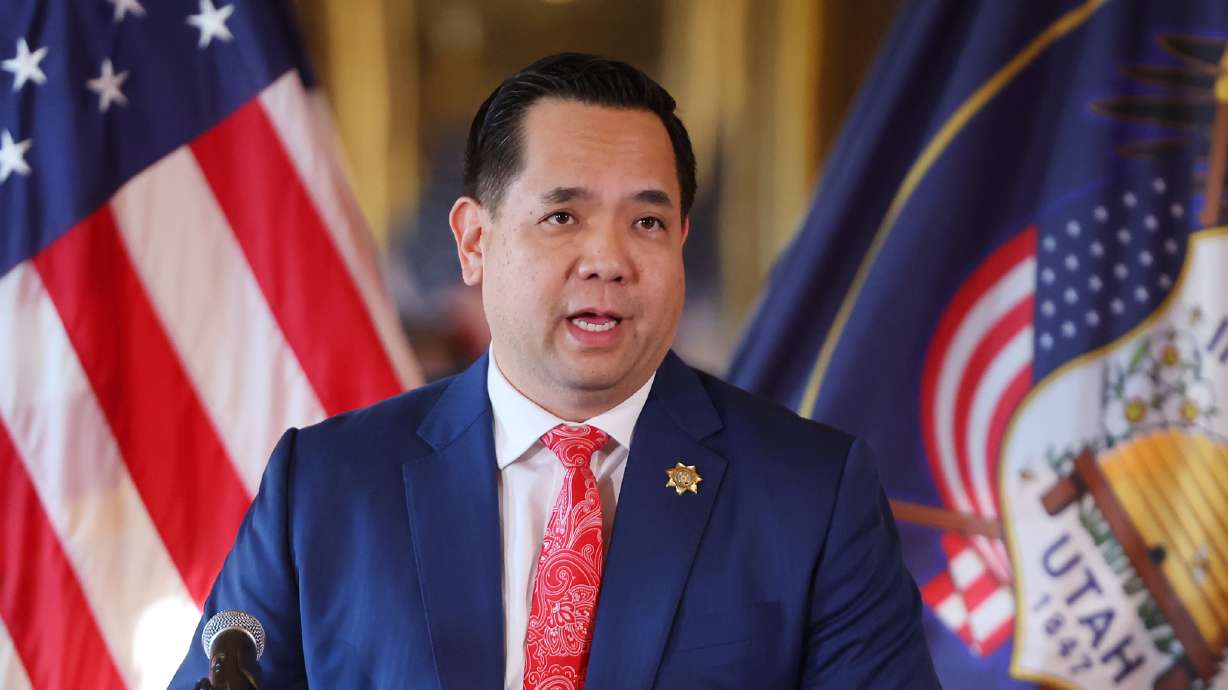Estimated read time: 4-5 minutes
This archived news story is available only for your personal, non-commercial use. Information in the story may be outdated or superseded by additional information. Reading or replaying the story in its archived form does not constitute a republication of the story.
SALT LAKE CITY — Utah's attorney general is applauding multiple U.S. asset management firms' decision to pull out of Climate Action 100+.
"This is a monumental day for the rule of law and the American people. It validates our fight against the radical, environmental agenda, perpetuated by Climate Action 100+ and similar entities" Attorney General Sean Reyes said in a Friday news release.
"Since the earliest days of ESG (environmental, social and corporate governance), my office has been unrelenting in opposing actions taken by a cabal of powerful public and private institutions wielding a disproportionate amount of power over everyday Americans," the statement continues.
Climate Action 100+ is "the world's largest investor engagement initiative on climate change," according to its website. A spokesperson for the organization told KSL.com that J.P. Morgan Asset Management and State Street Global Advisors have left the initiative, with investment company PIMCO leaving effective Mar. 15 and BlackRock scaling back involvement significantly.
These four companies represent approximately $18.7 trillion in assets.
On Mar. 31, 2023, Reyes and 20 other attorneys general wrote a letter to 53 asset managers — including BlackRock, J.P. Morgan and State Street — that had over $40 billion or more in assets, raising concerns "about the ongoing agreements between asset managers to use Americans' savings to push political goals."
The letter argued that environmental, social, and governance goals, such as reducing carbon emissions, are political in nature and change the "terms of the products offered, as well as engagements with individual companies," instead of acting "in the best fiduciary interests of their clients, which is their legal obligation."
In May 2023, Reyes testified before the U.S. House Committee on Oversight and Accountability. "Since the signing of the Paris Agreement in 2015," Reyes said, "there has been an open conspiracy to bypass Congress and instead impose costly changes on American consumers using the power of horizontal agreements by key players in our financial system, including Climate Action 100+."
Climate Action 100+ argues that "significant transition is necessary to contain severe climate-related risks to food production, infrastructure, water supply, human security and economic growth," so institutional investors are remaining true to their financial duties to clients by working toward the emissions goals set out in the Paris Agreement in 2015.
The organization's website argues that without greater action, the world can expect "an estimated $23 trillion of associated global economic losses over the next 80 years," which would "harm all economies, asset classes and industries, whether directly or indirectly, with escalating consequences for all financial market actors."
The move by these large financial firms came after Climate Action 100+ implemented new recommendations in June, asking asset managers to work with companies to "implement robust transition plans and to take action with a wider set of stakeholders to address the sectoral barriers to the net zero transition."
In the U.S., that means reporting "transition plans within the electric power, oil and gas, and transportation sectors," and disclosing "enhanced climate accounting" from the oil and gas sector, the agency's website says.
These new recommendations, and a new benchmarking program, were partly spurred on by critics who did not see the needle moving under the current initiative.
Maarten Vleeschhouwer, Head of the Paris Agreement Capital Transition Assessment, said: "As our analysis and the Benchmark shows, the vast majority of companies in these carbon-critical sectors are still not aligned with the Paris Agreement goals, underscoring the need for these firms to improve their climate action and transparency efforts."
But growing political pressure, like that from Reyes and other Republican attorneys general, which have brought accusations of "potential unlawful coordination," could have contributed to the movement of U.S. financial firms, who claim to be internalizing environmental decisions.
The Financial Times first reported that J.P. Morgan did not renew its membership of Climate Action 100+ after building up its own investment stewardship capabilities. BlackRock has announced that it is shifting its membership to BlackRock International. State Street did not immediately respond for comment.
A report from Reuters points out these actions fall in line with firms like Vanguard, the second largest investment firm in the world, which pulled out of a similar Net Zero Asset Managers initiative stating it wanted "to make clear that Vanguard speaks independently on matters of importance to our investors," though it will "continue to interact with companies held by Vanguard funds to understand how they address material risks, including climate risk, in the interests of long-term investors."










